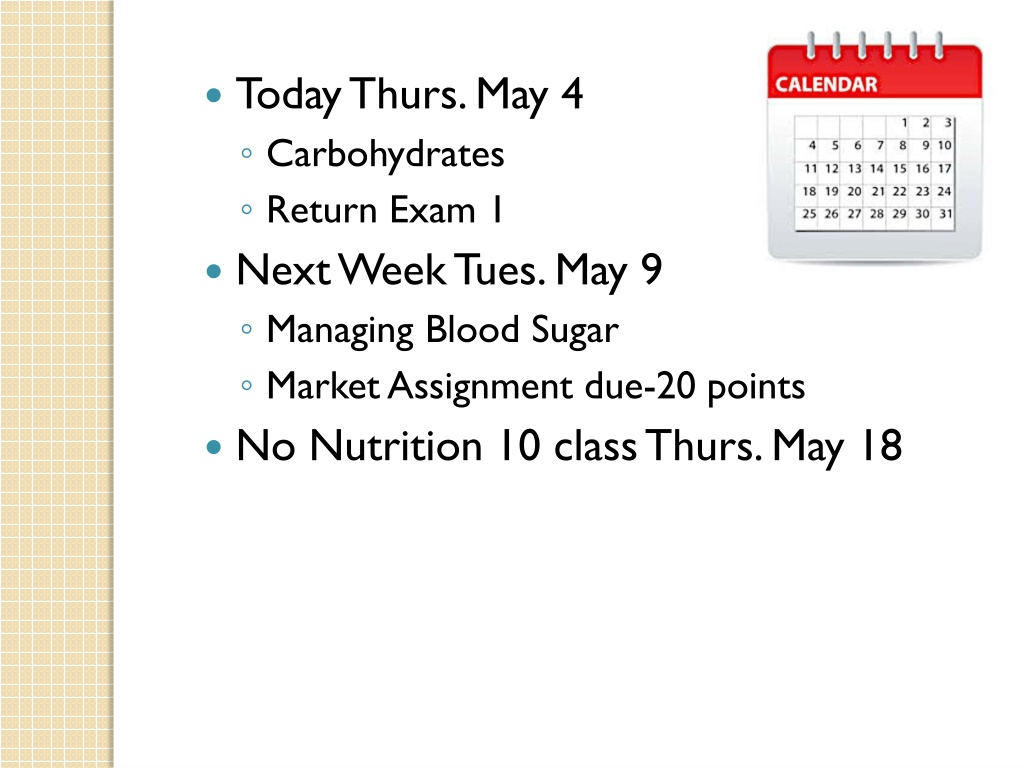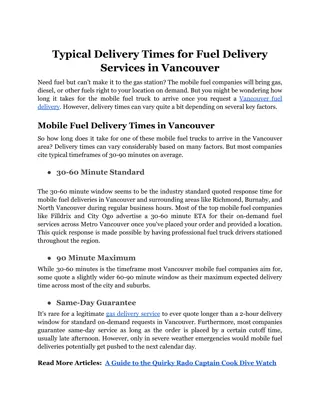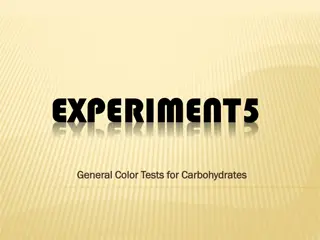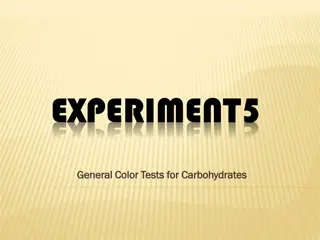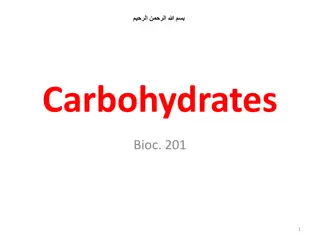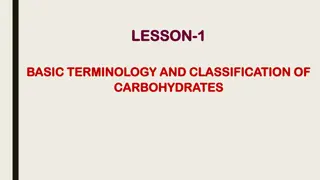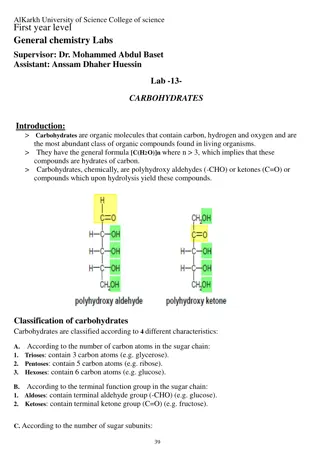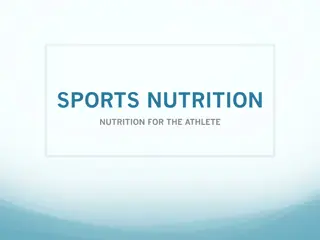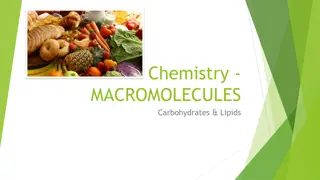Carbohydrates: The Fuel for Your Body
Carbohydrates are essential for providing fuel and energy for daily activities. Glucose, the primary source of energy, is derived from healthy dietary carbs like fruits, vegetables, grains, and beans. By understanding the types of carbohydrates - simple and complex - and their sources, you can optimize your diet for better health and energy levels.
Download Presentation

Please find below an Image/Link to download the presentation.
The content on the website is provided AS IS for your information and personal use only. It may not be sold, licensed, or shared on other websites without obtaining consent from the author.If you encounter any issues during the download, it is possible that the publisher has removed the file from their server.
You are allowed to download the files provided on this website for personal or commercial use, subject to the condition that they are used lawfully. All files are the property of their respective owners.
The content on the website is provided AS IS for your information and personal use only. It may not be sold, licensed, or shared on other websites without obtaining consent from the author.
E N D
Presentation Transcript
Today Thurs. May 4 Carbohydrates Return Exam 1 Next Week Tues. May 9 Managing Blood Sugar Market Assignment due-20 points No Nutrition 10 class Thurs. May 18
Carbohydrates The Working Fuel Provides us with fuel for the long haul; the work of daily living!
Carbs: vital fuel and more Natural source of fiber Spare protein from use as fuel Help fat burn efficiently Our #1 source of glucose Why is glucose so special?
Glucose. A product of photosynthesis Versatile, clean burning fuel Some cells only use glucose to make ATP we have a 24/7 need for blood glucose It is blood sugar Basic building block of most dietary carbs We store glucose but, as what? Glycogen . til depot fills, then as fat!!!
We make glucose from. Glycogen (stored carb in muscle and liver) Dietary and body proteins Dietary carbs, our #1 source of glucose : )
Ideally, most glucose comes from healthy dietary carbs. Examples fruit vegetables grains, beans grain by-products milk, yogurt honey, sugars
Carbohydrates Simple - Complex Simple structure Label as syrups ose suffix common Glucose: blood sugar Fructose, sucrose, lactose Complex structure Bulk of calorie intake Starch, fiber, glycogen Chains of glucose King Carb !! Cane, Beet etc. Sugar Fruit Sugar Milk Sugar
Carb Rich Foods: simpleor complex milk, sugars, honey flavored yogurt, fruit juice simple only fruit simple + complex grains, beans most veg mostly complex
A Closer Look at Simple Sugar Added vs. Natural fruit and its juice vegetables grains, beans milk, plain yogurt honey, sugars, syrups
A Closer Look at Simple Sugar Added vs. Natural Fruit and its juice vegetables grains, beans milk, plain yogurt honey, sugars, syrups
Added sugar vs. Natural sugar You add Nature adds Advice->limit intake of added sugar No limit on natural sugar from whole fruit and low-fat dairy Max added/day Men ~35 g (9t.) Women ~25 g (6t.)
Time Out .Think Lactose: a natural sugar found in milk and most by-products. 1. Is it a simple or complex carbohydrate? 2. Is it an added or natural sugar? 3. Is it bad for you? 4. Does lactose intolerance =milk allergy 5. Describe the carbohydrate in flavored yogurt?
Eating carbs results in gain weight. Not necessarily! Only store fat (gain weight) if consume more calories than needed regardless ofwhat foods the extra calories came from!
Complex carbs Many glucose units linked together starch (food) fiber (food) glycogen (storage carb in body)
Complex CHO (Plant Forms) Starch Storage glucose in plants Fiber Difficult to digest Not destroyed by cooking Soluble vs. insoluble Important for; GI tract health heart health satiety elimination
Fill up with real, whole food fiber! Plants rule the fiber domain! See Table 12.5 for a list of high fiber foods
Complex CHO (in animals) Glycogen Storage carb ~ 2000 Cal/150 lb (70Kg) adult Diet and exercise alter glycogen reserves where stored in liver/muscle Stored with water!
Eat more healthy, complex carbs veggies/whole fruit & grains/greens/beans Eat fewer added sugar foods flavored yogurt/candy/pastries/soda Max=~25 g/d (6t.) women ~35 g/d (9t.) men Read full carb breakdown on Facts Panel total carb, sugars, fiber Check out ingredient list for carb origin natural or added (latter covered by new label)
